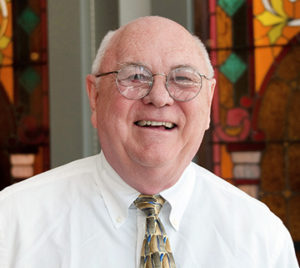Second Sunday of Lent
February 25, 2018

Readings:
First Reading: Genesis 22: 1-2, 9A, 10-13, 15-18
Responsorial Psalm: Psalm 116: 10, 15, 16-17, 18-19
Second Reading: Romans 8: 31B-34
Gospel: Mark 9: 2-10
What kind of God would demand the sacrifice of a long-awaited and precious child? This is the question that undoubtedly springs to mind as we read the first reading today. The text speaks of the demand as a “test,” and ultimately we learn that it was probably never God’s intention that Abraham actually kill his son. But it is a chilling story nevertheless. And one that has inspired many bad sermons and much bad theology about how God tests us–by keeping people in abusive relationships, by giving people chronic or even incurable diseases, by allowing innocent children to suffer, or even die. This is a dangerous passage, even though it is a powerful story of human trust and divine faithfulness.
Because the story is so dangerous, I think it’s important to say very clearly that God does not test us. Ever. Saying that God tests us may be a way of explaining the horrible things that happen in our world, but it is not a very good way of describing the way God acts in our world. God does not test us. Life tests us. But when we are tested, God never abandons us. God stays with us, offering us strength and courage. In today’s gospel we hear the Father speak of Jesus as God’s beloved son. In the same way, in our own time of testing, God assures us that we are God’s beloved sons and daughters. Because God is for us, as Paul says in our second reading, nothing can really prevail against us. This was the promise of Jesus’ transfiguration. This is God’s promise to us.
God is the God who “handed over” the beloved son, the God who spared nothing of God’s self to reveal the depth of divine love. But this does not mean that God sent Jesus to die. It means rather that God sent Jesus to show us who God really is, loving us “unto the end.” “Listen to him,” declares the Father on the mount of the transfiguration. Listen to those parables about divine mercy for those who have sinned. Listen to those stories about Samaritans who are more God-like than priests and Levites, or about tax collectors who are holier than Pharisees. Listen to how God’s vision is not just for invited guests for all on the highways and byways of the world. Listen to how women and men are worth “more than many sparrows.” Listen to how happy are those who are poor in spirit and how those who hunger and thirst for righteousness will be filled. Listen to Jesus as he says to a leper that begs for mercy: “I will do it.”
This is who God is. We might balk at the word “consubstantial” in the translation of the Nicene Creed in the 2010 liturgical translation, but what it means is that when we listen to Jesus we listen to the very voice of God. There is no other voice of God but the voice of Jesus.
“Listening to Jesus” might offer us a valuable practice as we enter into this second week of Lent this year. As we listen carefully to his voice in the daily reading of the gospel we will come to know a God who does not test us, but who calls us to deeper relationship with God’s self. As we listen carefully to his voice in the daily events of our lives we will come to know a God who is present in the midst of our lives as we go about our work, celebrate or struggle in our relationships with parents, children, spouse or friends, or as we fall and pick ourselves up over and over again. As we listen carefully to his voice in the events of our world we come to know a God who suffers with victims of violence and injustice, who longs for a world where people treat each other as sisters and brothers, who longs for the repair of our “common home.” As we listen to Jesus we are drawn more and more into his own life, into the Paschal Mystery into which we have been plunged by our baptism.
Listening to Jesus is not a test. It is a challenge, a challenge to believe that Jesus is the sacrament of the Love and Mercy that is at the center of Reality. But as we answer his challenge, Jesus–the true face of God–will be with us all the way.
Rev. Stephen Bevans, SVD
Louis J. Luzbetak, SVD Professor of Mission and Culture, Emeritus